Local Elections 2023: The Lincolnshire and East Yorkshire picture
- Published
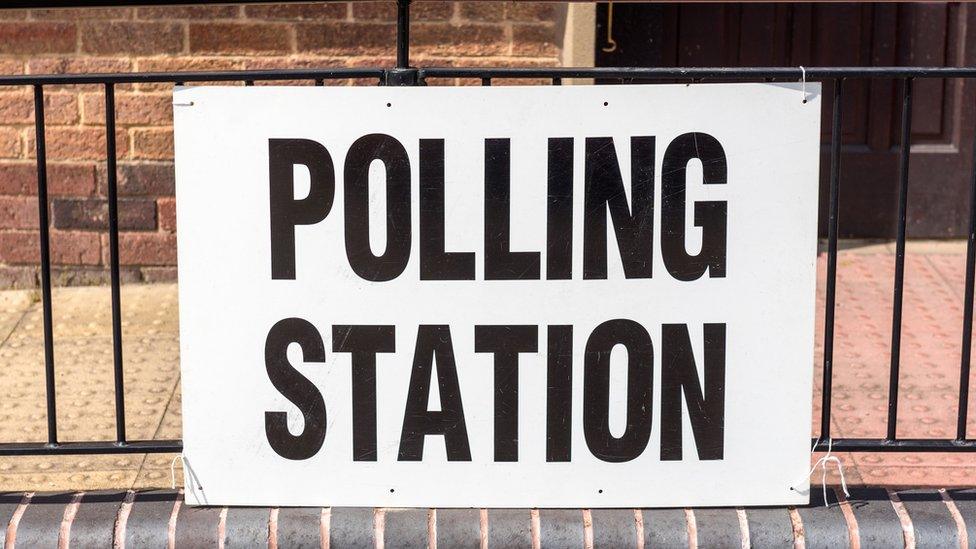
Voters will need ID for the first time to cast their ballot on 4 May
Tim Iredale, the BBC's political editor for Yorkshire and Lincolnshire, takes a look at some of the region's key issues and battlegrounds ahead of next month's local elections.
Voters living in every district across Lincolnshire and East Yorkshire can have their say on 4 May.
The last time local elections took place on this scale was in 2019, when the country was led by Theresa May and the UK was still part of the European Union.
Three Prime Ministers later and Rishi Sunak is about to face his first big test at the ballot box.
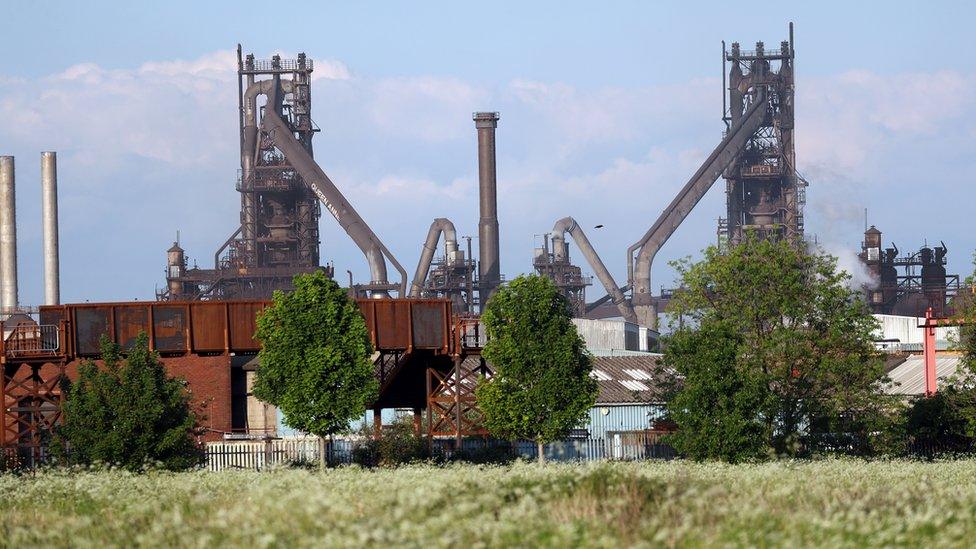
Economic concerns loom in Scunthorpe
While council elections are supposed to be about who empties our bins and repairs our roads, they are inevitably seen as a reflection on decisions made at Westminster.
The Conservatives are currently the dominant party of local government in Lincolnshire.
Labour will defend just one council in the county, the City of Lincoln.
But the party led by Sir Keir Starmer is confident of making gains and is targeting North Lincolnshire, which has been Tory controlled since 2011.
The Scunthorpe-based authority has regularly swung between the Conservatives and Labour since its creation in 1996.
North Lincolnshire could be seen as a test of 'red wall' voters - people who traditionally voted Labour but who switched sides to propel Boris Johnson to election victory.
Here, economic concerns loom large following the recent announcement of job losses at Scunthorpe steelworks.
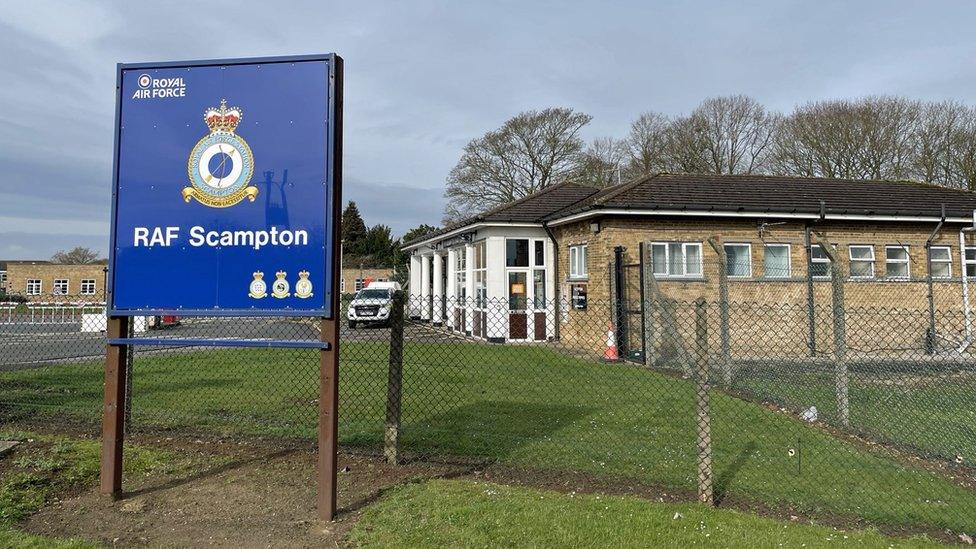
Up to 2,000 asylum seekers could live at the site in Lincolnshire, the government said
Many eyes will be on West Lindsey, the district which is home to RAF Scampton.
The former Red Arrows base and home of the World War Two Dambusters has been earmarked to house 2,000 asylum seekers by the Home Office.
A number of local Conservatives have spoken out against the plan and the issue could decide whether the Tories remain in control here, with the Liberal Democrats currently the second largest party.



North of the Humber, the Lib Dems will defend their slender majority on Hull City Council which was secured last year following a decade of Labour dominance.
Only one third of seats are up for grabs in Hull, but political control of the city could be decided by a handful of voters in a couple of swing wards.
East Riding of Yorkshire has been solid Tory territory in recent years and while many Conservative councillors will hope to retain their seats at County Hall in Beverley, the opposition parties are confident of gaining ground.

Election types
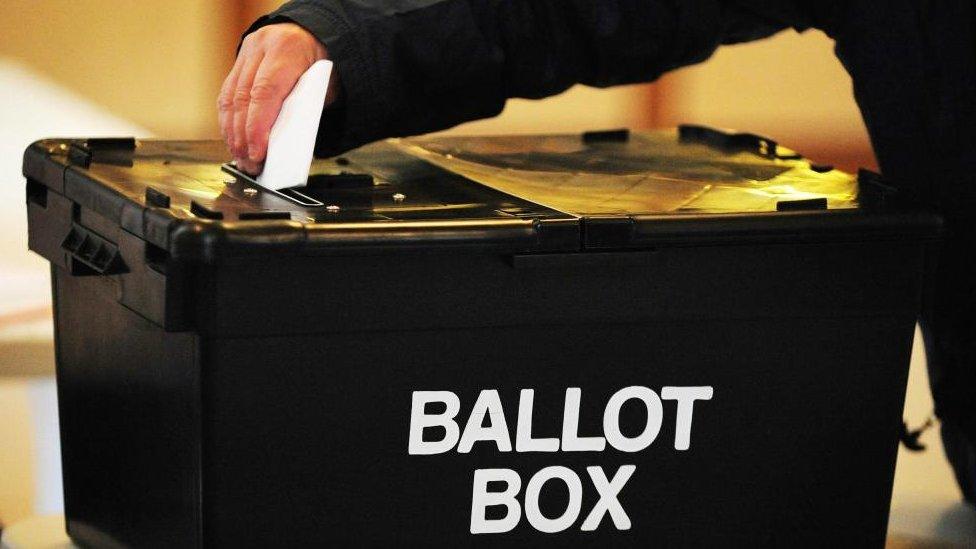
Not all local government elections take place at the same time. Councils will do one of the following:
elect all the local councillors every four years
elect half the local councillors every two years
elect one third of the local councillors every year for three years and hold no elections in the fourth year
All-out elections are being held at; Boston Borough Council, East Lindsey District Council, East Riding of Yorkshire Council , North Kesteven District Council, North Lincolnshire Council, South Holland District Council, South Kesteven District Council and West Lindsey District Council.
'Third' elections are being held at Hull City Council, City of Lincoln Council and North East Lincolnshire Council.

Follow BBC East Yorkshire and Lincolnshire on Facebook, external, Twitter, external, and Instagram, external. Send your story ideas to yorkslincs.news@bbc.co.uk, external.
- Published3 May 2023

- Published29 April
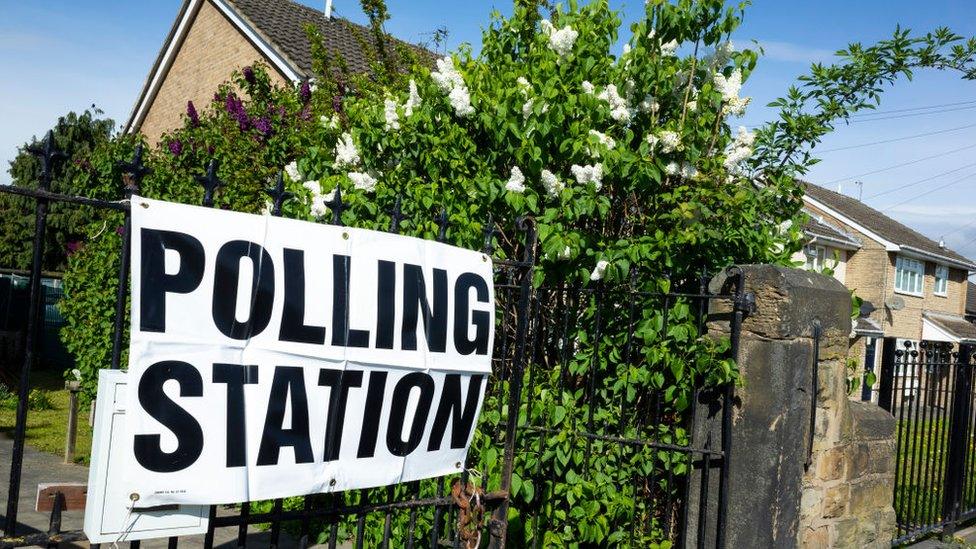
- Published6 April 2023
